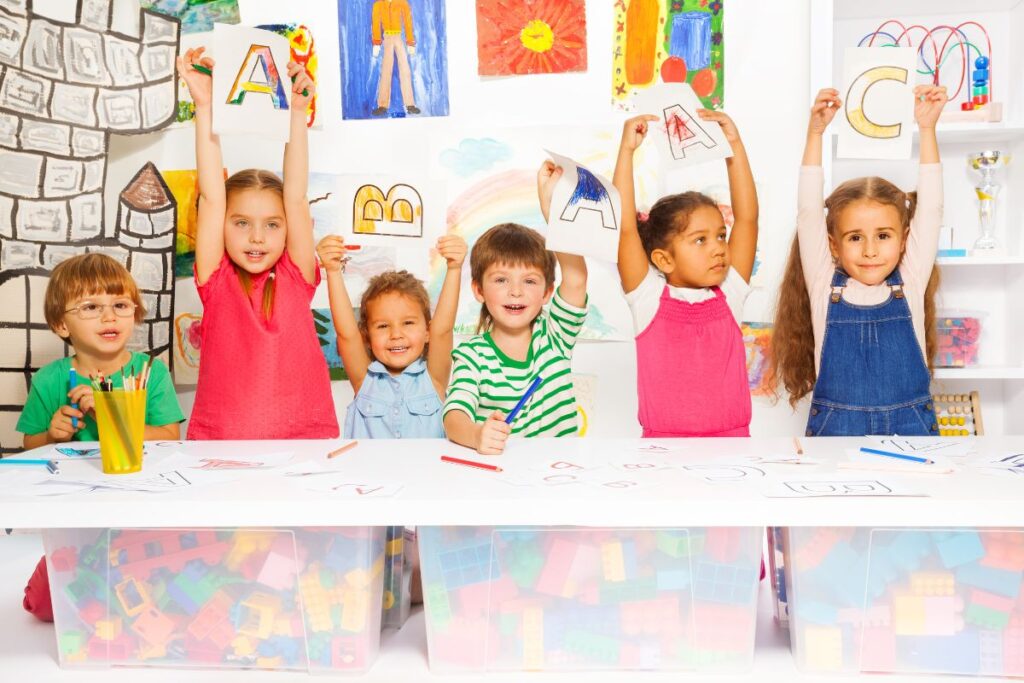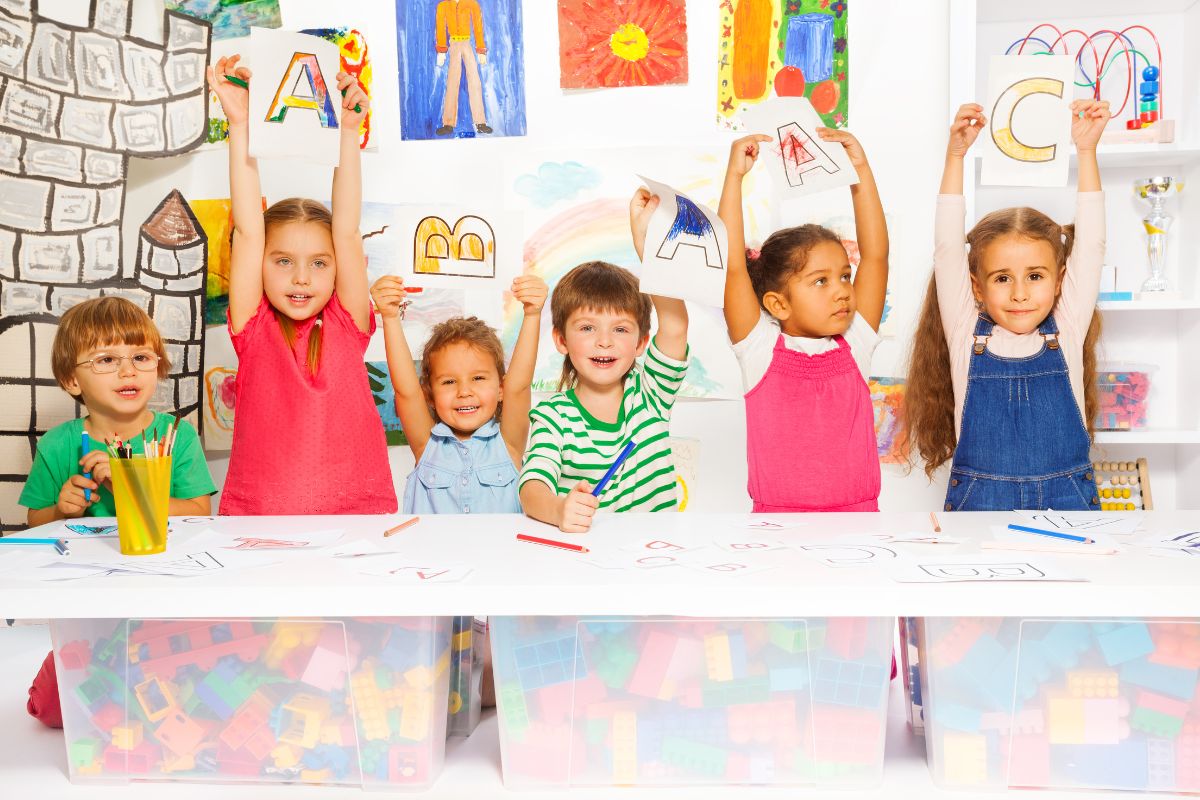
What Should First Graders Know: A Comprehensive Guide for Parents and Educators
Entering first grade is a significant milestone in a child’s educational journey. As parents and educators, understanding what should first graders know is crucial for providing the necessary support and guidance. This article aims to provide a comprehensive overview of the key academic, social, and emotional skills that children typically develop during this pivotal year. We’ll explore the core competencies in reading, writing, math, science, and social studies, as well as the essential social-emotional skills that contribute to a well-rounded development.
Reading and Language Arts
Reading is arguably the most important skill a first grader will develop. The focus shifts from learning letter sounds to comprehending simple stories and texts. Understanding what should first graders know in reading involves several key areas:
- Phonics and Decoding: First graders should be able to decode simple words using phonics rules. They should recognize common sight words (e.g., the, and, a, to, in, is, you, that, it, he, was, for, on, are, as, with, his, they, I, at, be, this, have, from, or, one, had, by, word, but, not, what, all, were, we, when, your, can, said, there, use, an, each, which, she, do, how, their, if, will, up, other, about, out, many, then, them, these, so, some, her, would, make, like, him, into, time, has, look, two, more, write, go, see, number, no, way, could, people, my, than, first, water, been, call, who, oil, sit, now, find, long, down, day, did, get, come, made, may, part).
- Reading Comprehension: Children should be able to answer simple questions about a story, identify the main characters, and retell the plot in their own words.
- Fluency: While not expected to be perfect, first graders should be able to read simple texts aloud with some fluency and expression.
- Vocabulary: Expanding vocabulary is crucial. First graders should be exposed to new words regularly and encouraged to use them in their own writing and speaking.
Knowing what should first graders know in reading is essential for setting them up for future academic success. Reading proficiency in first grade is a strong predictor of later reading achievement.
Writing
Writing skills develop alongside reading. First graders begin to express their thoughts and ideas in written form. Key writing skills for first graders include:
- Sentence Construction: Children should be able to write simple sentences with a subject, verb, and object.
- Capitalization and Punctuation: Basic understanding of capitalization (at the beginning of sentences) and punctuation (periods at the end of sentences).
- Spelling: While perfect spelling is not expected, first graders should be able to spell common words correctly and use phonetic spelling for unfamiliar words.
- Narrative Writing: Writing simple stories with a beginning, middle, and end.
Understanding what should first graders know about writing helps parents and educators provide targeted support and encouragement.
Mathematics
Math in first grade builds upon the foundational skills learned in kindergarten. First graders delve deeper into number concepts and begin to explore basic operations. Essential math skills for first graders include:
- Number Sense: Understanding numbers up to 100, including counting, comparing, and ordering.
- Addition and Subtraction: Solving simple addition and subtraction problems within 20.
- Geometry: Identifying and describing basic shapes (e.g., circles, squares, triangles, rectangles, cubes, spheres, cones).
- Measurement: Understanding basic measurement concepts (e.g., length, weight, time).
- Problem Solving: Solving simple word problems involving addition and subtraction.
Knowing what should first graders know in math allows for effective instruction and intervention when needed. A solid foundation in math is crucial for future success in STEM fields. [See also: Math Games for First Graders]
Science
Science in first grade introduces children to the natural world around them. The focus is on exploration and observation. Key science concepts for first graders include:
- Life Science: Learning about plants, animals, and their habitats.
- Earth Science: Exploring weather, seasons, and the Earth’s resources.
- Physical Science: Understanding basic concepts of matter and energy.
- Scientific Inquiry: Conducting simple experiments and making observations.
Understanding what should first graders know in science encourages curiosity and fosters a love of learning about the world. Hands-on activities and experiments are particularly effective in engaging young learners.
Social Studies
Social studies in first grade focuses on building an understanding of community, culture, and history. Key social studies concepts for first graders include:
- Community: Learning about different types of communities and the roles of people within them.
- Culture: Exploring different cultures and traditions.
- History: Learning about historical figures and events.
- Citizenship: Understanding the responsibilities of being a good citizen.
Knowing what should first graders know in social studies helps them develop a sense of belonging and an appreciation for diversity. Discussions and activities that promote empathy and understanding are crucial.
Social-Emotional Skills
Beyond academics, social-emotional skills are essential for success in first grade and beyond. These skills help children navigate social situations, manage their emotions, and build positive relationships. Key social-emotional skills for first graders include:
- Self-Awareness: Recognizing and understanding their own emotions.
- Self-Management: Managing their emotions and behaviors in healthy ways.
- Social Awareness: Understanding the emotions and perspectives of others.
- Relationship Skills: Building and maintaining positive relationships.
- Responsible Decision-Making: Making ethical and responsible choices.
Understanding what should first graders know in terms of social-emotional development is crucial for creating a supportive and inclusive learning environment. Teachers and parents can model positive behaviors and provide opportunities for children to practice these skills. [See also: Social Emotional Learning Activities for Kids]
Practical Tips for Parents and Educators
Here are some practical tips to support first graders’ learning and development:
- Read aloud to your child regularly: This helps to build vocabulary, comprehension, and a love of reading.
- Provide opportunities for writing: Encourage your child to write stories, letters, or journal entries.
- Make math fun: Use games, puzzles, and real-world examples to make math more engaging.
- Explore science through hands-on activities: Conduct simple experiments and visit science museums.
- Discuss social studies concepts: Talk about current events, different cultures, and historical figures.
- Foster social-emotional skills: Model positive behaviors, teach coping strategies, and encourage empathy.
- Communicate with your child’s teacher: Stay informed about your child’s progress and work together to support their learning.
Addressing Learning Gaps
It’s important to recognize that every child learns at their own pace. If a child is struggling in a particular area, it’s essential to identify the learning gap and provide targeted support. This may involve:
- Tutoring: Providing one-on-one instruction to address specific skill deficits.
- Small group instruction: Working with a small group of students who need extra help in a particular area.
- Differentiated instruction: Adapting instruction to meet the individual needs of each learner.
- Parent involvement: Working with parents to provide support and reinforcement at home.
The Importance of Play
While academic skills are important, it’s also crucial to remember the importance of play. Play allows children to explore their creativity, develop social skills, and learn through experimentation. Provide opportunities for unstructured play, both indoors and outdoors. Knowing what should first graders know also includes understanding the value of play in their overall development.
Conclusion
Understanding what should first graders know is vital for parents and educators who want to provide the best possible support for young learners. By focusing on academic skills, social-emotional development, and the importance of play, we can help first graders build a strong foundation for future success. Remember that every child is unique, and it’s important to celebrate their individual strengths and provide support where needed. By working together, we can help first graders thrive and reach their full potential. Knowing what should first graders know extends beyond just academics; it encompasses their social, emotional, and physical well-being. Providing a nurturing and stimulating environment is key to their overall development. The knowledge of what should first graders know is an ongoing process, requiring continuous observation, assessment, and adaptation to meet their evolving needs. As educators and parents, our role is to guide and support them on this exciting journey of learning and discovery.

